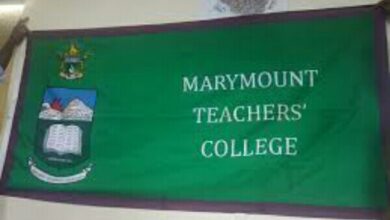Opportunity For Zimbabwean Youth: 2016/2017 Consortium For Advanced Research Training In Africa

Opportunity For Zimbabwean Youth: 2016/2017 Consortium For Advanced Research Training In Africa
Over the medium-term, CARTA aims to produce a critical mass of high-quality graduates trained to address the complex issues surrounding health and development in Africa, retain them in the region, and provide them with a vibrant intellectual environment, as well as viable and challenging research and growth opportunities.
CARTA aims to achieve reforms in higher education by:
- Assisting universities to develop enriching and vibrant academic and research environments;
- Assisting universities to develop enriching and vibrant academic and research environments; and,
- Supporting promising African scholars who teach at affiliated universities to obtain high-quality doctoral training in public and population health-related fields.
CARTA is currently offering a collaborative doctoral training program in public and population health. This program has been developed in response to the great challenges faced by Africa’s institutions of higher education in addressing the training and retention of the next generation of academics in the region. Women are particularly encouraged to apply.
Specifically, CARTA seeks to fund candidates who will be future leaders in their institutions; that is, young, capable, and committed individuals who, in time, will ensure that their universities will be the institutions of choice for future generations of academics and university administrators wishing to make a positive impact on public and population health in Africa.
Successful applicants will attend CARTA’s innovative series of Joint Advanced Seminars (JAS) for cohorts of doctoral students admitted and registered in the participating African universities. Both the development and delivery of these courses are jointly-led by regional and international experts. The seminars consist of didactic sessions, discussions, demonstrations, and practice labs. These activities collectively serve to:
- Expose students to key theories and concepts, seminal readings, and research methods of disciplines relevant to public and population health;
- Train students in critical research skills; and
- Build and maintain a network of researchers for scientific collaborations, professional support, and mutually beneficial exchange of scientific resources
The advanced seminars are offered once annually for four years to each cohort and build skills and conceptual depth from year to year. Each JAS runs for 3 to 4 weeks. Specific topics covered in each JAS include the following:
- JAS-1 builds critical thinking, technical skills, and other core research competencies, and introduce students to the essential concepts and seminal articles of the disciplines brought together under CARTAJAS-2 focuses on data management and analysis. Fellows learn to use software packages for qualitative and quantitative data management and
- JAS-2 focuses on data management and analysis. Fellows learn to use software packages for qualitative and quantitative data management and analyses. Practice sessions use real research data and current software packages for hands-on trainingJAS-3 focuses on data presentation, the doctoral dissertation, and scientific writing and communication skills to facilitate results dissemination and policy engagement
- JAS-3 focuses on data presentation, the doctoral dissertation, and scientific writing and communication skills to facilitate results dissemination and policy engagementJAS-4 addresses professional development including skills necessary to manage and teach large class sizes, raise and manage research funds, grant
- JAS-4 addresses professional development including skills necessary to manage and teach large class sizes, raise and manage research funds, grant writing, and research management. JAS-4 is also designed to serve as an opportunity for senior fellows to practice mentoring of junior fellows through discussions and laboratory sessions, software training, and general information sharing.
Eligibility
- A Masters degree in a relevant field.Prior admission into a
- Prior admission into a PhD program is not required for application but awards are contingent on such admission being obtained at one of the participating African universities.Applicants for this program must be teaching or research staff at one of the participating African institutions and should be committed to contributing towards building capacity at their institutions.
- Applicants for this program must be teaching or research staff at one of the participating African institutions and should be committed to contributing towards building capacity at their institutions.Applicants’
- Applicants’ PhD research proposal must be related to public and population health.Fellowships are only open to people who have not yet registered for a
- Fellowships are only open to people who have not yet registered for a PhD or are in the very early stages (first year) of the PhD program.Applicants must commit to participation in all four annual residential Joint Advanced Seminars (
- Applicants must commit to participation in all four annual residential Joint Advanced Seminars (JASes), and to engage in inter-seminar activities designed to keep fellows actively engaged and in continual communication with peers and mentors.
- Male applicants must be under the age of 40 years and female applicants under the age 45 years.
Application Procedure
- Contact the CARTA focal person) at your institution to discuss your interest and obtain application materials. Application forms may also be downloaded from the CARTA website (www.cartafrica.org)Submit your application to the local CARTA committee in your institution (also email a copy of all application materials to ([email protected] ), which will conduct the initial screening process and submit successful applications to the CARTA secretariat. The deadline for submissions is May 15, 2016.
- Submit your application to the local CARTA committee in your institution (also email a copy of all application materials to ([email protected] ), which will conduct the initial screening process and submit successful applications to the CARTA secretariat. The deadline for submissions is May 15, 2016.If successful at the university selection level, the CARTA secretariat will inform and contact you to proceed to the next level
- If successful at the university selection level, the CARTA secretariat will inform and contact you to proceed to the next levelSuccessful applicants at the university selection level will be expected to:
- Successful applicants at the university selection level will be expected to:
• Complete an online-based pre-JAS, Part I tasks
• A competency course (June 5, 2016 – July 5, 2016)
• Send a full application to the CARTA secretariat. The deadline for submission of the full application is July 5, 2016.Final fellowship decision, which is independent of the university application, will be communicated by CARTA secretariat by November 1, 2016. - Final fellowship decision, which is independent of the university application, will be communicated by CARTA secretariat by November 1, 2016.



